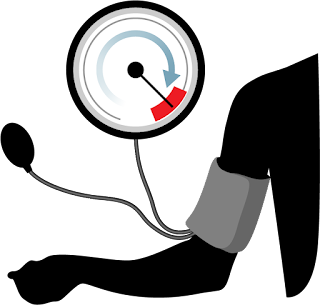Thyroid
Title: Understanding Thyroid: Functions, Disorders, and Management
Introduction:
The thyroid gland, a small butterfly-shaped organ located in the neck, plays a crucial role in regulating various bodily functions. This remarkable gland produces hormones that control metabolism, energy levels, growth, and development. However, when the thyroid malfunctions, it can lead to several health disorders that can have a significant impact on an individual's well-being. In this article, we will explore the functions of the thyroid gland, common thyroid disorders, their symptoms, and available treatment options.
Thyroid Function:
The thyroid gland produces two primary hormones: thyroxine (T4) and triiodothyronine (T3). These hormones are responsible for regulating metabolism, which affects the body's energy production and usage. They influence the functioning of organs, tissues, and cells throughout the body, including the heart, brain, muscles, and liver. Additionally, the thyroid gland produces calcitonin, a hormone that helps regulate calcium levels in the body.
Common Thyroid Disorders:
1. Hypothyroidism: Hypothyroidism occurs when the thyroid gland fails to produce enough thyroid hormones. It can lead to symptoms such as fatigue, weight gain, depression, dry skin, and constipation. The most common cause of hypothyroidism is an autoimmune condition called Hashimoto's thyroiditis, where the body's immune system mistakenly attacks the thyroid gland.
2. Hyperthyroidism: Hyperthyroidism is the opposite of hypothyroidism, characterized by excessive production of thyroid hormones. Grave's disease, an autoimmune disorder, is the most common cause of hyperthyroidism. Symptoms may include weight loss, increased appetite, rapid heartbeat, anxiety, tremors, and heat intolerance.
3. Thyroid Nodules: Thyroid nodules are small abnormal growths that form within the thyroid gland. Most nodules are benign, but in some cases, they can be cancerous. Thyroid nodules often go unnoticed and do not cause symptoms. However, some nodules may grow larger and cause difficulties swallowing, breathing, or produce changes in the voice.
Diagnosis and Treatment:
To diagnose thyroid disorders, healthcare professionals conduct a comprehensive evaluation, including a physical examination, blood tests to measure hormone levels, and imaging tests like ultrasound or nuclear scans to assess the thyroid gland's structure and function.
Treatment for thyroid disorders varies depending on the specific condition:
1. Hypothyroidism: Hypothyroidism is typically managed by prescribing synthetic thyroid hormone medications to restore hormone levels. Patients with hypothyroidism will need to take these medications for life, and regular monitoring of hormone levels is crucial.
2. Hyperthyroidism: Treatment options for hyperthyroidism include medications that reduce thyroid hormone production or block their effects. In some cases, radioactive iodine therapy or surgery to remove part or all of the thyroid gland may be necessary.
3. Thyroid Nodules: Treatment for thyroid nodules depends on their size, characteristics, and potential for cancer. Small, benign nodules may not require treatment, while larger nodules or those with suspicious features may require fine-needle aspiration or surgical removal.
Conclusion:
The thyroid gland, though small, plays a vital role in maintaining overall health and well-being. Understanding the functions of the thyroid and being aware of common thyroid disorders is essential. If you experience any symptoms or suspect a thyroid disorder, it is crucial to consult with a healthcare professional. With proper diagnosis and treatment, most thyroid disorders can be effectively managed, allowing individuals to lead healthy and fulfilling lives.



Good write up
ReplyDelete